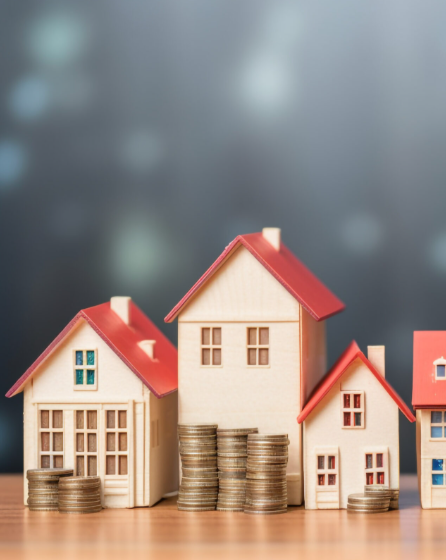Selling your home can bring up a lot of questions, especially when it comes to taxes. Whether you’re moving, upgrading to a larger property, or downsizing, understanding the tax implications is essential. This guide will help you navigate the question of whether or not you’ll have to pay tax when selling your house, and what to consider when buying another one.
Do I Pay Tax If I Sell My House in the UK?
Generally, if you sell your primary residence, you won’t have to pay tax on the sale. This is because it falls under the “Private Residence Relief,” which exempts your main home from capital gains tax (CGT). However, this only applies if you meet certain criteria, including:
- You have only one home and have lived in it throughout the ownership period.
- The property has not been rented out.
- You have not used any part of your home exclusively for business purposes.
- The total area of the property, including the garden, does not exceed 5,000 square meters (or about an acre).
- The property was purchased as a home, not an investment.
If your property meets these conditions, you’re eligible for relief, and you won’t owe capital gains tax when you sell it.
When Do You Pay Tax on Selling Your House?
Capital gains tax (CGT) becomes relevant when you sell a property that isn’t your primary residence. This includes:
- Buy-to-let properties
- Properties used for business
- Land
- Inherited properties
If you sell any of these types of properties, you will need to pay CGT on the profit made from the increase in property value. For instance, selling a buy-to-let property would attract CGT. The tax is calculated based on the difference between what you paid for the property and the amount you sell it for.
If you’re unsure how much tax you owe, tools like a capital gains tax calculator for UK property sales can help estimate your CGT, depending on whether the gains are short-term or long-term.
Tax Considerations for Buy-to-Let Owners
Buy-to-let owners often face additional tax implications. In addition to CGT, landlords are required to pay income tax on the rental income they receive. Selling a buy-to-let property will trigger CGT on the profits. If you’re a landlord, it’s crucial to stay up-to-date with tax rules to ensure you’re paying the correct amount on both your rental profits and any capital gains.
Do I Pay Tax If I Sell My House and Buy Another?
While selling your house doesn’t usually incur a tax bill if it’s your primary residence, buying another property does come with tax obligations—specifically, stamp duty. In England and Northern Ireland, stamp duty applies to property purchases over £250,000, and this threshold varies in Scotland and Wales.
If you’ve already owned a property and are buying another, you won’t be eligible for the first-time buyer stamp duty relief. The relief is only available for first-time buyers purchasing properties up to £425,000. However, if your property costs more than £250,000, you’ll be required to pay the standard stamp duty rate, plus an additional 3% surcharge, since it’s considered a second property.
Stamp Duty and Its Impact on Buying a Home
Stamp duty can significantly add to the cost of purchasing a property. The rates vary depending on factors like the location of the property, whether you’re a UK resident, and the price of the property.
In some cases, if the property you sell doesn’t qualify for Private Residence Relief, and you buy another property, you could be liable for both CGT and stamp duty. This double tax burden can create a significant cost when buying and selling a home at the same time.
It’s essential to factor both capital gains tax and stamp duty into your budget when planning to buy a new home. Alongside these taxes, you’ll also need to account for other costs, such as solicitor fees, estate agent fees, and moving expenses.
Conclusion
Selling your house and buying another can trigger various taxes, depending on your specific circumstances. If the property is your primary residence, you likely won’t need to pay capital gains tax, thanks to Private Residence Relief. However, if you’re selling a buy-to-let property or any property that isn’t your main home, CGT will apply. When purchasing a new property, stamp duty is the main tax to consider, with additional surcharges if you’re buying a second home.
It’s always a good idea to consult with tax professionals or financial advisors when navigating property transactions to ensure you’re aware of all the tax implications and to avoid any surprises down the line.



